|
|
| |
| |
| |

Animal Care: Roles of Animal Hospitals and Nursing
in the Modern Community under
the Coexistence of Human beings and Pet Animals in Japan
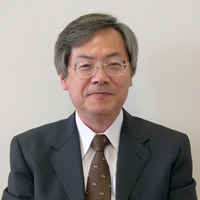
Prof. Mitsuaki OHTA
(Azabu University, School of Veterinary Medicine)

|
The better health would be maintained by the professional knowledge and techniques. The medical specialists such as medical doctor, nurses, physical, and occupational therapists support the human health. The Nation guarantees their abilities and properties, giving the state licenses to them. On the other hand, the animal health care is different from the human because only the veterinarians are given the right of animal care by the Nation. We have to reveal what these situations mean, in this workshop.
The Japanese Veterinary Nursing Association, whose president is Professor Yuji Mori, has been established in this April, and is the association for the people who are engaged in the animal nursing, the essential work for the veterinary medicine. The most important thing is that our association would develop, should be the essential organization for the animal health care, and must contribute to the better society of human beings and animals. To execute our mission we have to recognize the present situation about the animal health care and the animal nursing. We present three topics below.
First presentation “The importance of animal nursing in the animal hospitals” will be given by three veterinarians, who are also the presents of animal hospitals. The second will be “A college education of animal nursing” by three authorities. The third would be “The perspectives for animal nursing in Japan”. We will discuss thoroughly with audiences about the role of animals nurses in the animal health care, thinking about that of animal hospitals. We are looking forward to have opinions by special guests outside Japan.
|
| |
|
|
| |
Part 1: The Importance of Veterinary Nursing in Veterinary Hospitals |
| |
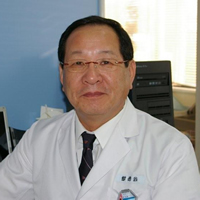 Dr. Daijiro HARA Dr. Daijiro HARA
(Director, Jutoku-kai, Animal Medical Center)

|
One social phenomenon that has developed drastically over the course of the last 30 years in Japan has been the taking root of the idea of HAB (the Human-Animal Bond), which has manifested itself in improved relations between humans and animals as well as in new lifestyles of living with animals. Moreover, veterinary hospitals have responded to this national lifestyle change by mastering higher levels of veterinary science, employing veterinary nursing staff, and providing clean facilities exclusively for the care and treatment of animals.
When we look back over the last 30 years, we find that at veterinary hospitals prior to 1980, veterinary practice was carried out in an all-in-one waiting room and clinic setting in an atmosphere of mutual cooperation between the veterinarians and the animals’ owners. In the 1980s, the need for modernization was being felt across all animal care-related fields including in veterinary hospitals. Specifically, in the veterinary nursing field, a slew of vocational training schools for veterinary nursing staff were opened across the country. Graduates of these schools then began to work actively at veterinary hospitals nationwide, although their professional titles varied according to the certifying organization concerned, ranging from veterinary nurse to AHT and VT, and their new techniques became popularized rapidly. However, it is regrettable that a long interval passed from the 1980s until 2006 without sufficient discussion being undertaken concerning the occupational ability and fields of competence that should be required of these veterinary staff or about establishing a government and industry-operated certification system for ensuring they meet minimum standards.
At the outset, there was no background for requiring high-level treatment at veterinary hospitals, which meant that basic veterinary knowledge in addition to the ability to play the conventional assistant’s role were sufficient qualifications for a career in veterinary nursing. But with the passing of time, the demands for modernization have risen steadily, and since the turn of the century, capable and highly professionally aware people have begun to appear in this field too. There are numerous reports detailing examples of successful personnel management by veterinary nursing staff in veterinary hospitals as well as evidence that veterinary nursing techniques have proven themselves useful.
Today it is a matter of common knowledge as well as conventional social wisdom that an veterinary nursing job category exists in the veterinary hospital field and that veterinary nursing professionals are at work at such places. Also, research results in the ethological and veterinary clinical fields have created a foundation for establishing veterinary nursing as a science and this in turn is making a contribution to the further popularization and development of the veterinary nursing profession. Based on the abovementioned considerations, together with many veterinary nursing professionals who are veterans in their respective fields, we will discuss the importance of veterinary nursing as an occupation in veterinary hospitals from the standpoint of veterinarians who run such hospitals.
|
|
|
| |
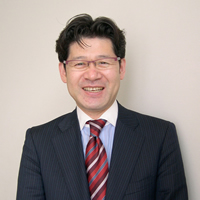 The Presence of Veterinary Nurses in Veterinary Hospitals The Presence of Veterinary Nurses in Veterinary Hospitals
Dr. Yoshihiko KOJIMA
(Director, Animal Wellness Center, Nippon Kojima Animal Hospital)

|
Thirty years have now passed since I started up a veterinary hospital in the medium-sized city of Niigata. At the beginning, I ran the practice together with my wife, who acted as a veterinary nursing assistant. Looking back on that time, I can see that it marked the beginning of the veterinary nursing profession in Japan.
Imagine what would happen if all the veterinary nurses were to disappear from the veterinary hospitals tomorrow. There is no doubt that veterinarians and pet owners would be unsure of how to cope. The operation of the hospitals could not be kept going at all. Just take the reception department as an example. Communication between owners and veterinarians via telephone cannot be conducted effectively if the receptionist doesn’t have professional knowledge, and if an animal’s life is lost as a result, owners suffer if the owner is likely to suffer heartache or lose their spirit both mentally and physically. In any event, a veterinary hospital will not keep going if no veterinary nurses are working there.
My daughter took up the veterinary nursing profession because she feels it is an excellent profession where she has the capacity to invigorate both people and animals. She herself told me that she joined the profession because she had actually seen senior veterinary nurses at work.
In future, veterinary nurses who are active day and night and have pride and confidence as experts will be displaying their activities on an even broader scale based on their precious first-hand experience. Also, those who are engaged in the veterinary nursing profession should treat with kindness not only animals but also the people they come into contact with. I believe that this will lead to the further expansion of the veterinary nursing profession
To finish, I’d like to emphasize that the veterinary nursing profession is an important presence in veterinary hospitals. |
|
|
| |
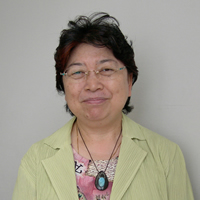 Dr. Keiko SUGIMOTO Dr. Keiko SUGIMOTO
(Director, Minami-Koiwai Pet Clinic, Medical Support Center)
 |
We veterinary medical care workers hope to be able to support all the animals we come into contact with during our work as well as the families and owners who keep these animals so that they can live healthily and stay well and happy. In order to realize this, it is essential that we not cling to a single method of therapy, but that we select a suitable treatment policy from the variety available that is as friendly as possible to the animal both physically and mentally. Veterinary hospitals are required not only to conduct treatment combining Western medicine and alternative medicine but also to provide support from an animal welfare standpoint. Also, in addition to providing medical care, their role needs to extend to providing comprehensive care including grooming, discipline classes, counseling, etc. In order for them to be able to carry out such a wide range of support activities, veterinary nurses are indispensable as members of medical care teams. In our hospital as well, veterinary nurses are displaying their activities in collaboration with veterinarians while at the same time deepening their bonds with the animals in their care and with their owners. As a veterinarian and a worker at a veterinary clinic, I wish to support to maintain our work place to be able to make full use of variety available. And at the same time I believe we should veterinary nurses satisfy and respect for their each interest, talent and their hope. I believe we should try to make the importance of veterinary nurses as professionals more widely known in society. |
| |
|
|
Part 2: Cultivating Veterinary Nursing Professionals in Japan |
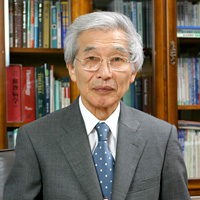 In Anticipation of the Early Establishment of a Legal System
for the Veterinary Nursing Profession In Anticipation of the Early Establishment of a Legal System
for the Veterinary Nursing Profession
Prof. Shigenori IKEMOTO
(President, Nippon Veterinary and Life Science University)
 |
“Basic nursing education should be learned at university” says a council of the Health, Labour and Welfare Ministry. Another pertinent text is “High-level professional education in the nursing profession” from Forum of Japan Science Support Foundation, etc. Official statements such as these indicate that we are living in an era in which alarm continues to ring out about the social necessity and future development of the nursing profession as a medical profession as well as about the need to improve gender status (including gender equality for many other professional careers), in the educational profession, and in the research profession.
In 1899, the Obstetric Nurse Regulation was established. In 1925, the Nurse Regulation was established. In 1941, the Health Nurse Regulation was established. In 1947, the Health Nurse and Nurse Law was established. And in 1948, the present Health Nurse, Obstetric Nurse and Nurse Law was established simultaneously with the Medical Practitioners Act, the Medical Service Act, the Dentist Act, etc. In 2001, job titles that had up to that time differed according to the gender of the person doing the job were unified as public health nurse, obstetric nurse, nurse, and practicing nurse. This revision prompted a great leap forward in the social status of nurses.
It is reported that at present there are 1,034 nurse-training organizations in Japan including 158 nursing colleges, and that the total number of students attending these organizations is 177,185. Also, for practicing nurses with over ten years of experience, a two-year correspondence course education is available that makes it easy to obtain certification. At present, the shortage of nurses is being highly publicized and Japan is trying to cover the shortage by hiring nurses from countries in the developing world such as the Middle East.
And now, turning to the present state of affairs surrounding the nursing profession in the veterinary medical care field, I find myself standing frozen in place and filled with horror. Indeed I have a sense that the clock is being put back to the Meiji era. How do we proceed with the modernization of the veterinarian nursing profession, which is positioned in a pre-Meiji era situation? I will try to express my point of view fully aware that I may be criticized for being self-righteous. Although this problem has just begun to be considered, it doesn’t mean we have been standing around idly. The Japan Veterinarian Medical Association began studying this matter from about 1965, and set out a full-scale vision in 2006. Then, under the Japan Veterinarian Medical Association’s leadership, the Japanese Veterinary Nursing Association was established this spring.
Japan’s first such veterinary nursing training facility, the School of Veterinary Nursing and Technology was established at Nippon Veterinary and Life Science University in 2006, which was 53 years after the birth of the School of Health Science and Nursing at the Faculty of Medicine of Tokyo University in 1953. Also, although the faculty names are different, the new universities share the same aims, and I am very pleased by the establishment of the School of Veterinary Nursing and Technology. Veterinary nursing education has continued to be conducted at vocational schools, miscellaneous schools and two-year colleges, but the profession has been unable to shed the image of being uneven. The list of reason for that includes unstable positions, low salaries, and a low social recognition.
In order to resolve these points and to elevate veterinary nursing to a position in the limelight, there is no alternative to pursuing a strategy of establishing a legal system for veterinary nursing profession. Our ultimate aim must be the establishment of a Veterinary Nurse Law, but prior to that, we can make a start by establishing regulations and ministerial ordinances in the same way as was done in the past with regard to nurses and veterinarians. As to the methodology, it should be legally determined in the Veterinary Practice Act that “veterinary nurses can be installed in order to smooth the promotion of veterinary medical care” and that “the veterinary nursing system is to be determined according to a Regulation”. Then, in receipt of the powers delegated under the Act, the Regulation should be constructed to include licensing, examinations, work duties, penalties, etc. This, I believe, is the quickest way. I would like to propose a strategic outline for accomplishing this.
|
| |
|
|
| |
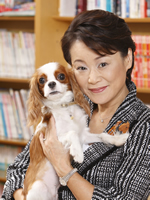 Ms. Keiko SHIMOZONO Ms. Keiko SHIMOZONO
(Board Chairperson, Shimozono Gakuen – International Animal Health & Management Colleges)

|
The number of pets being kept in Japan is rising rapidly with the latest figure of 26,840,000 animals, centered on dogs and cats, being reported for last year. In recent years the keeping environment for pets has moved from mainly outside to mainly inside the home. There is also a tendency for these animals to be regarded as family members rather than pets. Accordingly, in medical care too, a demand is growing for minute response and high quality care equivalent to those provided to people. Veterinary medical care differs from human medical care in that there are currently no veterinary paramedical professionals such a radiographers, physiotherapists, etc. In this situation, our aim is to cultivate sensible veterinary nursing experts who can act as bridges between veterinarians and owners and between animals and veterinarians by nurturing the ability to nurse animals.
|
|
|
| |
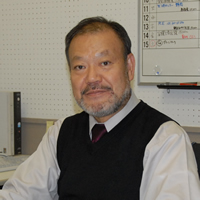 The Present State of Training and Education in the Veterinary Nursing Profession The Present State of Training and Education in the Veterinary Nursing Profession
Prof. Akio FUKUSHO
(Professor, Nippon Veterinary and Life Science University, Faculty of Veterinary Science, School of Veterinary Nursing and Technology)
 |
In today’s Japan in the small animal medical care field, the presence of veterinary nursing professionals is indispensable. However, unlike in the case of nurses in human medical care, veterinary nurses are not recognized as technical experts under law, and they are not permitted to take part in the administering of medical care (including medical examinations and treatment) as stipulated under Article 17 of the Veterinary License Law, even if instructed to do so by a veterinarian.
When we look at the present state of training and education in the veterinary nursing profession, we find there are over 50 veterinary training college and veterinary nursing training college, one two-year veterinary nursing college, and three veterinary and health nursing universities. Moreover, the level of education provided by these institutions varies and no efforts are being made towards the equalization of the veterinary education level. At present, most of those who are trained in these institutions take veterinary nurse certification examinations conducted by private bodies and obtain private veterinary nurse qualifications, but these qualifications have no legal standing in terms of veterinary practice.
Given these circumstances, in the interests of introducing a national certification recognition system, it is necessary to cultivate a veterinary nursing profession that meets the requirements of today’s highly developed veterinary medical care by considering the working range of the veterinary profession and promoting the equalization of veterinary nursing education (such as by establishing a curriculum common to all veterinary training colleges and universities, etc.)
|
| |
|
|
| |
Part 3: Exploring How Veterinary Nursing Should Be |
| |
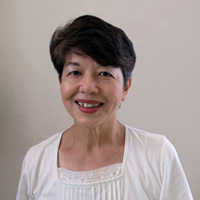 The Present Situation and Future of the Veterinary Nursing Profession The Present Situation and Future of the Veterinary Nursing Profession
Ms. Mitsuko SAKATA
(Manager, Sakata Animal Hospital)

|
This spring, the Japan Veterinary Nursing Association was established. I have taken the post of adviser to this organization and I am willing to do all I can to help it flourish based on my professional experience. Currently I am retired from active work in the veterinary nursing field and I am engaged in education at a school for raising veterinary nursing professionals in addition to working as an animal hospital manager. Twenty years ago, I was among the first batch of students to take the veterinary nurse examination given by the Japan Small Animal Veterinary Association and I went on to became an certified veterinary nurse. Now that I have witnessed the birth of a national vocational organization for veterinary nurses, I feel deeply moved.
For those of you who are young, veterinary hospitals have existed since before you were born, and it is natural for you take your pets, who you regard as members of the family, to such a hospital for treatment if they become ill. However, if we look back on the history of veterinary practice, we can see that it has developed from an era when it existed mainly to provide medical care for livestock to the present era when it also encompasses the medical care of household animals. In the old days, in veterinary hospitals, a single vet was considered sufficient to provide medical care for household animals. In that situation, little by little, assistants appeared who carried out reception work, cleaning and the immobilization of animals under medical care. Nowadays these assistants have become known as vet’s assistants, sisters, receptionists, etc. In terms of social change, this is an era in which animals are considered to coexist with people. Under the Animal Protection Law as well, the status of household animals has changed from that of pets to family members. The medical care of household animals has also become more sophisticated, specialized and developed. Owners’ needs have also changed as evidenced by a stronger desire not to allow their pets to contract diseases, and a wish to use a veterinary hospital to prevent their pets from developing diseases rather than to provide treatment when their pets become ill.
Under these circumstances, I feel that the profession of the veterinary nurse has changed from one of being a mere veterinarian’s assistant to being a sophisticated technician who takes care of animals directly and also deals with the owners and families of animals as an expert with a professional knowledge of veterinary nursing. In order to prove my contention true, I ask all of you who are concerned with veterinary medical care to support the veterinary nursing profession so that it will become socially recognized as a real profession. And to those of you who are veterinary nursing professionals, it is my hope that you will make it a lifetime profession and that you will pursue it with confidence and pride and in consideration of your own work-life balance. |
|
|
| |
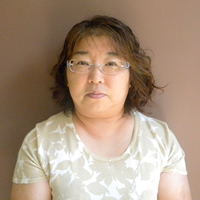 The Present Situation and Future of the Veterinary Nursing Profession The Present Situation and Future of the Veterinary Nursing Profession
Ms. Junko YOKOTA
(Animal Nurse, Yokota Pet Clinic)

|
| |
I work as a veterinary nurse while at the same time doubling as a manager running a veterinary hospital together with my husband in Aomori Prefecture. I took part in the start up of this association with the intention of thinking and taking action together with others in order to further the development of the veterinary nursing profession, despite the fact that I live and work in the provinces.
I think that for a long time the veterinary nursing profession was unable to cast off the conventional image of its practitioners as being veterinarian’s assistants, which went hand in hand with the understanding that we operate under the instructions of vets and handle odd jobs all over the hospital. Today, however, as veterinary medical care has become more sophisticated and specialized, and with relationships between animals and their owners taking the form of family ties or even stronger bonds, there has been a significant change in the quality of medical care demanded by owners for their pets. Within the field of veterinary medical care too, the need for veterinary nursing professionals to become members of medical care teams together with veterinarians is growing more acute. I believe that in future, veterinary nursing staff should play the role not of assistants to veterinarians but as independent experts in veterinary nursing.
From now on, the veterinarian nursing profession must appeal its own existence to society by itself while at the same time learning by itself so that it can be a truly independent profession. In addition, we will continue to make every effort towards ensuring the happiness of the animals in our care and their owners.
|
|
|
| |
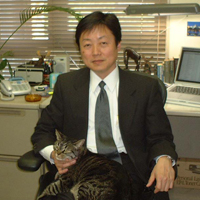 Prof. Yuji MORI Prof. Yuji MORI
(Professor, University of Tokyo, Graduate School of Agricultural and Life Science)

|
In the last year, I have heard about the present situation of the veterinary nursing profession, which various sources have estimated numbers around 20,000 practitioners. At the same time, I have also obtained quite a lot of information from overseas. Now, I am keenly aware of my responsibilities as Chairman of the Japan Veterinary Nursing Association. Despite the fact that the profession is indispensable to securing the quality of veterinary medical care in Japan, in the present situation it is not obtaining a satisfactory evaluation as a specialist profession. The main problem points with the present situation are probably as follows.
| |
• There is no unified standard of knowledge and skill that is required in order to work in the veterinary nursing profession. (By contrast, for example, veterinarians are required to reach a certain standard level by obtaining university education and passing the relevant examinations.) |
| |
• The separation of tasks or duties between veterinarians and veterinary nurses in veterinary medical care is not clearly marked. |
| |
• The recognition of the veterinary nursing profession as a specialized profession is low. |
In respect of all of the other points, Japan clearly differs from Western countries. As a result:
| |
• The detailed contents of the veterinary nursing profession and its working conditions are determined at the personal discretion of the head of each individual veterinary hospital. |
| |
• The staff turnover within the profession is high, with the result that excellent human resources are rarely cultivated. |
Under such circumstances, the first step towards improvement has been the establishment of the Japan Veterinary Nursing Association, and there is no doubt that this is providing solid support for the profession. I suppose the main improvement measures that need to be made come down to the following: |
|
|
| |
|
| |